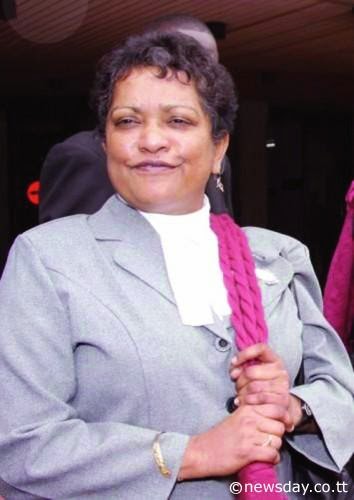Caricom must exploit US, China geo-political rivalry
Caricom must exploit US, China geo-political rivalry
Published:
Wednesday, June 5, 2013
CLR James once described Caribbean peoples as being amongst the
most modern, they having been at the centre of the 19th century industrial
revolution in Britain.
Over the last week, the Caribbean was again centre stage to an
evolving international environment as the super power of the 20th century, the
United States, and the emerging power of the 21st century, the People’s
Republic of China, came to Port-of-Spain and by extension the Caribbean
(English, Spanish, French and Creole-speaking) to undertake strategic
geo-political jockeying for positions.
The US Vice President, Joe Biden, essentially said by his
presence, that the Caribbean continues to be the American backyard, even if at
times others are allowed to pass through. On the other side with a fair amount
of quiet aggression, the emerging power came from the Far East to assert that
“both China and Trinidad and Tobago belong to the developing world, we have
similar views on international and regional issues and we hope to share views
on the reform of the international system and climate change.”
What is more, President Xi Jinping made the point that “China
always looks on its relationship with the Caribbean from a strategic
perspective and we are committed to the building of a comprehensive and
co-operative partnership.” Further, he pointedly sought to identify China as a
developing country.
He did not elaborate on China’s “strategic perspective” in
relation to the Caribbean but procuring raw materials for its industrio-techno
machine would not be a bad guess. But even more significant is that part of the
mission of the Chinese President was to gain vital geo-political support from
Caribbean countries in the Western Hemisphere, a region once said to be off-limits
to “foreign” powers.
As a means of explaining his presence in the region, Vice
President Biden said: “I’m here because President Obama wanted me to have an
opportunity to dialogue with all of you and because our country is deeply
invested and wants to become more deeply invested in a partnership with all the
nations of the Caribbean.”
In his wake, the US vice president left the Trade and Investment
Framework Agreement. The intention of this agreement is to build on the
Caribbean Basin Initiative and to co-operate in security, immigration and other
matters and to extend continuing goodwill to enhance traditional human and
cultural relationships with the Caribbean on its Third Border.
In the instance of President Xi, it was decided that in addition
to his stops in Central America on his way to a summit in Washington with
President Obama, he could take along with him support from Caricom; perhaps as
a means of impressing his US counterpart that China has friends in the
Caribbean.
To ensure that his visit was not one of well-intentioned promises,
President Xi left behind the commitment to provide US$3 billion in
concessionary loans for infrastructure and other development works in the region,
and US$250 million to build a children’s hospital and sport stadia here in
Trinidad and Tobago.
Super power geo-political rivalry will play itself out at a level
that Caribbean countries have no access to and can do nothing about. The
challenge is for Caricom, in the first instance, and the wider Caribbean with
the Dominican Republic giving the regional grouping some extension into what
used to be called the Greater Antilles, to find working space to make use of
its history, its critical geographic space and the cross currents of
super-power manoeuvring.
All of this is needed if the region is to capitalise on this 21st
century power re-alignment.
The time is here for a Caribbean diplomacy of the 21st century.
Caricom’s political leaders of the late 20th century did not come close to
utilising the model left behind by Ramphal, Demas, Nettleford and others in the
Time for Action report. For an even less-committed group of Caribbean
presidents and prime ministers, an attempt will have to be made to do where
their predecessors talked.
To mount a new diplomatic initiative, the leaders must begin at
once the implementation of the Caricom Single Market and Economy. They have to
forget the semantics and equivocation and plunge deeply into constructing the
CSME.
Already, 85 per cent of what is exported into the US under the CBI
is without tariffs. Under the CSME new products and services must be developed
on a regional basis to attract investment and eventually to export what is
produced under the new TIFA. US and Chinese investments to produce goods and
services in an internationally competitive market must be encouraged.
Surely Caricom manufacturers and governments stand a much better
chance of having projects funded by the development bank to be established by
the BRICS (Brazil, Russia, India, China and South Africa) on the basis of
combined resources and production at a regional level rather than as individual
producers.
So if Caricom governments, business community and people are to
make use of the opportunities provided by this historic changing of the
international guard, they must begin by fulfilling the outstanding agenda
before they can begin to build on it.
( The Trinidad Guardian , Wednesday 5th, June 2013)




Comments